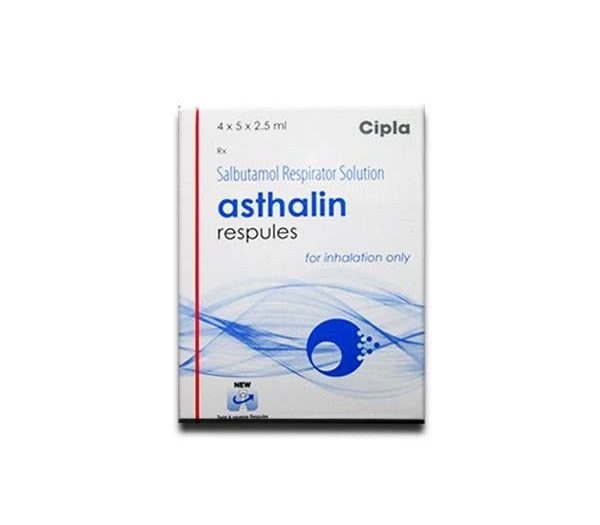Asthma is a chronic respiratory condition that affects the airways, causing inflammation and narrowing of the air passages.
While there is no cure for asthma, there are several treatments and lifestyle changes that can help manage symptoms and reduce the frequency and severity of asthma attacks.
Medications
Inhalers and other medications prescribed by a doctor can help reduce inflammation and open airways, making it easier to breathe.
There are two main types of medications used to treat asthma: quick-relief medications and long-term control medications.
Quick-relief medications, such as albuterol, are used to quickly relieve asthma symptoms during an asthma attack.
These medications work by opening up the airways and reducing inflammation. Long-term control medications, such as inhaled corticosteroids, are used to prevent asthma symptoms and reduce the frequency of asthma attacks.
These medications are taken daily and work by reducing inflammation in the airways.
Lifestyle Changes
In addition to medication, lifestyle changes can also help manage asthma symptoms. Here are a few tips:
- Identify and avoid triggers: Asthma triggers can include allergens such as pollen, dust mites, and animal dander, as well as irritants such as cigarette smoke and air pollution. Identifying and avoiding triggers can help reduce the frequency of asthma attacks.
- Maintain a healthy weight: Being overweight can make asthma symptoms worse. Maintaining a healthy weight can help improve lung function and reduce asthma symptoms.
- Exercise regularly: Regular exercise can help improve lung function and reduce asthma symptoms. However, it is important to talk to a doctor before starting a new exercise routine.
- Manage stress: Stress can trigger asthma symptoms. Managing stress through techniques such as deep breathing and meditation can help reduce the frequency of asthma attacks.
Alternative Therapies
There are also several alternative therapies that may help manage asthma symptoms, although more research is needed to confirm their effectiveness. Some alternative therapies that may be helpful include:
- Acupuncture: Acupuncture involves inserting needles into specific points on the body to improve overall health and well-being. Some studies have suggested that acupuncture may be helpful in managing asthma symptoms.
- Herbal remedies: Certain herbs, such as ginger and turmeric, may have anti-inflammatory properties that can help reduce inflammation in the airways. However, it is important to talk to a doctor before taking any herbal remedies, as they can interact with medications and cause side effects.
What is the best treatment for asthma?
The best treatment for asthma varies depending on the severity of symptoms and the individual’s response to treatment. Here are some of the most effective treatments for asthma:
- Inhaled Corticosteroids
Inhaled corticosteroids are the most effective long-term treatment for asthma. These medications work by reducing inflammation in the airways, making it easier to breathe. Inhaled corticosteroids are usually taken once or twice a day and are considered safe for long-term use.
- Bronchodilators
Bronchodilators are medications that help open up the airways, making it easier to breathe. There are two types of bronchodilators: short-acting and long-acting. Short-acting bronchodilators are used for quick relief of symptoms, while long-acting bronchodilators are used to prevent symptoms from occurring.
- Leukotriene Modifiers
Leukotriene modifiers are medications that help reduce inflammation in the airways. They are often used in combination with inhaled corticosteroids for people with moderate to severe asthma.
- Immunomodulators
Immunomodulators are medications that help regulate the immune system. They are used for people with severe asthma who do not respond to other treatments. Immunomodulators work by reducing the number of white blood cells in the airways, which can help reduce inflammation.
- Allergy Shots
Allergy shots, also known as immunotherapy, are a treatment option for people with allergic asthma. Allergy shots work by gradually desensitizing the immune system to allergens, reducing the severity of asthma symptoms.
- Lifestyle Changes
Lifestyle changes can also help manage asthma symptoms.
These include avoiding triggers, such as allergens and irritants, maintaining a healthy weight, exercising regularly, and managing stress.
In conclusion, the best treatment for asthma depends on the severity of symptoms and the individual’s response to treatment. Inhaled corticosteroids, bronchodilators, leukotriene modifiers, immunomodulators, and allergy shots are all effective treatment options.
Lifestyle changes, such as avoiding triggers and maintaining a healthy lifestyle, can also help manage asthma symptoms. It is important to work closely with a healthcare provider to develop a personalized treatment plan for asthma.





It’s encouraging to read about natural remedies alongside conventional treatments. I’m curious about the scientific evidence supporting these alternative approaches.
Thank you for highlighting the importance of regular exercise for asthma management. It’s inspiring to hear success stories of people who have improved their condition through physical activity.
Wow, this article really shed light on some alternative methods for managing asthma. I’ve been struggling with it for years, and it’s refreshing to see some natural remedies discussed rather than just relying solely on medication.
This article highlights the importance of a comprehensive asthma action plan. I’d love to hear personal anecdotes from individuals who have successfully managed their asthma long-term. Real-life stories can be so inspiring!